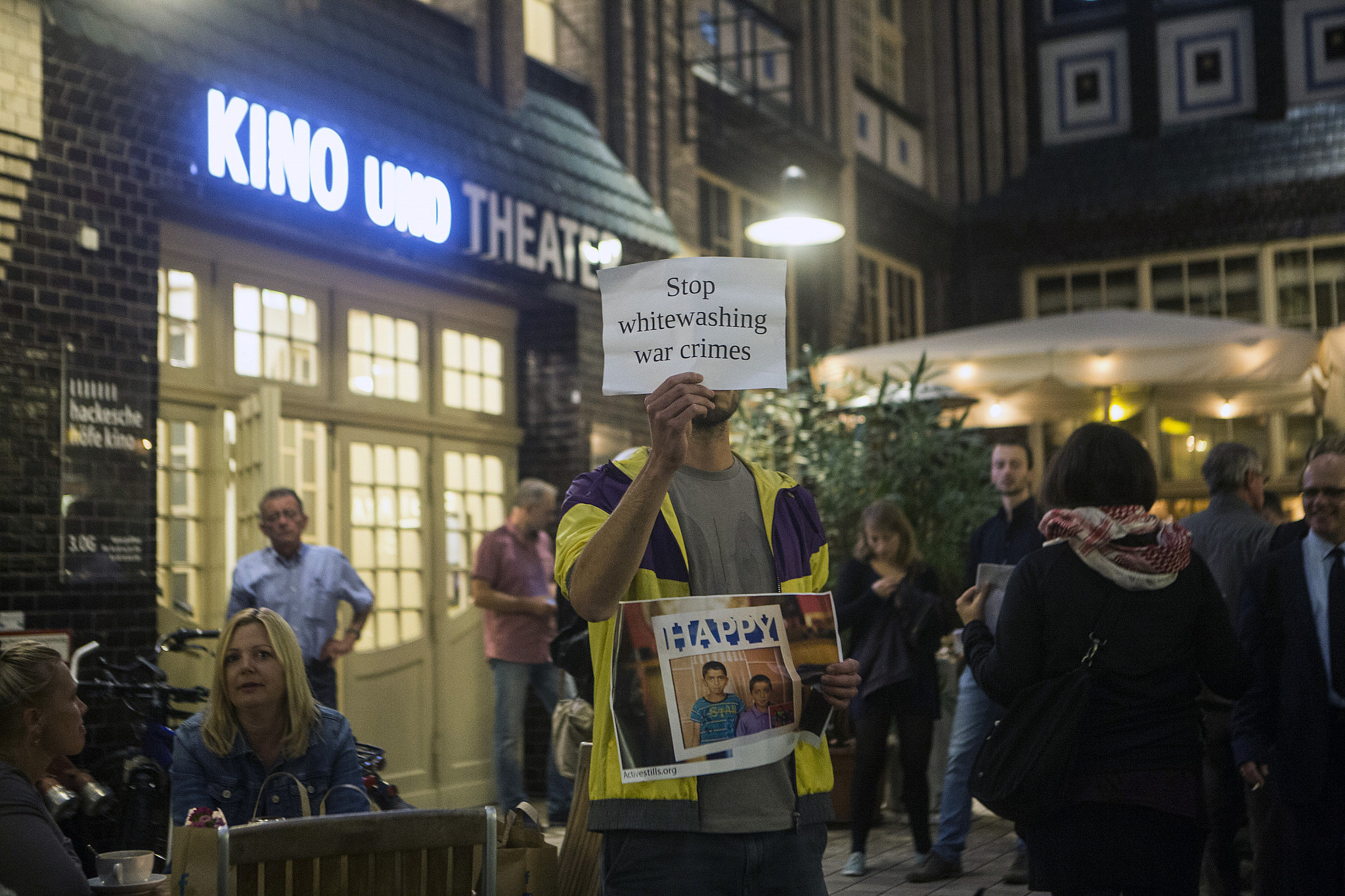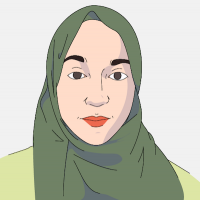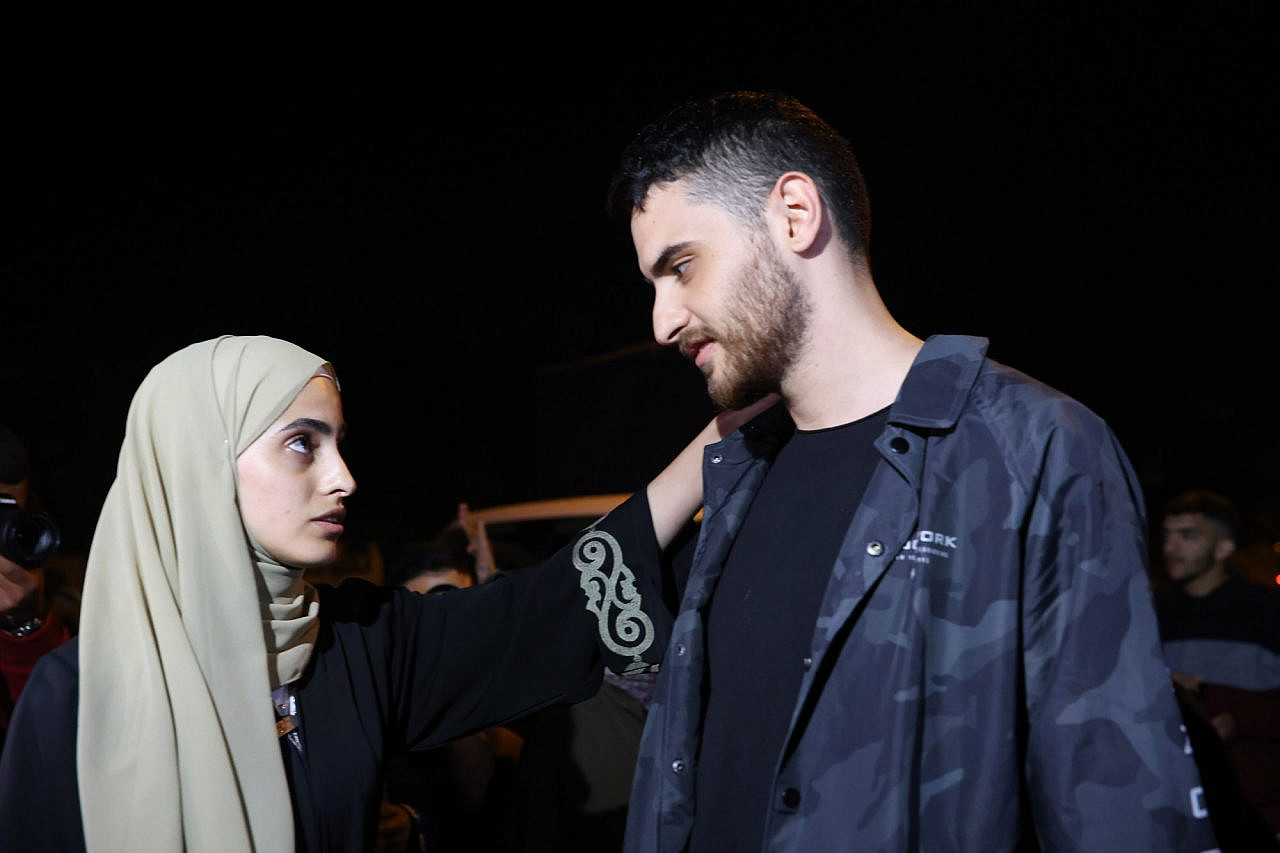On May 20, the Goethe-Institut, a German cultural nonprofit based in Hamburg and largely funded by the German government, disinvited Palestinian poet and activist Mohammed El-Kurd from participating in the “Beyond the Lone Offender” summit.
Scheduled to take place from June 23-26, the summit was supposed to focus on how right-wing movements operate internationally. The institute, however, did not believe El-Kurd was an “appropriate speaker for this forum” due to previous posts of his on social media that criticized Israel, which the Institute “did not find acceptable.”
The incident is the latest episode in an accumulating norm of censorship and harassment of Palestinian activists and public figures in Germany, primarily on the grounds of accusations of antisemitism.
Upon learning of the cancelation of El-Kurd’s invite, the organizers of the panel, Sinthujan Varatharajah and Moshtari Hilal, took to Twitter to call off their curatorial contribution. “Our cancelation is in response to Goethe-Institut’s attempts to intervene in our curatorial decisions and by way of it, enforce a climate of anti-Palestinian censorship,” the statement read. Varatharajah told +972 that not only was El-Kurd on the speakers’ list from the very beginning, but that Goethe organizers were helping to secure El-Kurd’s visa to Germany. On May 20, however, Goethe told Varatharajah and Hilal that there were “internal discussions about Mohammed.”
El-Kurd is a native of occupied East Jerusalem and a member of one of the families in the neighborhood of Sheikh Jarrah whose homes are directly under threat of settler takeover. Over the past year, he has risen to prominence as one of the faces of the Palestinian struggle, including through his poetry and as a reporter for The Nation. In the process, he has received immense backlash for, among other things, his condemnation of both Israeli policies and Zionism.
El-Kurd did not respond to +972’s request for comment.
Hilal and Varatharajah’s panel was to focus on how authoritarian regimes and right-wing groups use media and other related techniques to oppress their respective societies. The curators felt El-Kurd had much to contribute on the topic. “Mohammed was a perfect candidate,” Varatharajah said. “He uses media to cleverly subvert the common narrative, and we wanted to discuss those parallels during the roundtable.”
“What is happening in Germany is that certain people are not even considered worthy of an invitation,” Hilal told +972. “We wanted to pretend we lived in a world where it is normal to invite someone like Mohammed El-Kurd — because it should be. Our curatorial decisions were based on our own values and interests, not how institutions want us to curate.”
“We live in a climate where Palestinian issues are an inconvenience and disturbance for everyone, so much so that no one wants to include them to avoid the ‘headaches’ involved,” Varatharajah said. “We refused to abide by this political dynamic or give in to the political pressure, which is why we canceled our contributions.”
Since the disinvitation, however, many speakers, including prominent British Pakistani journalist Mohammed Hanif and Berliner Zeitung writer Hanno Hauenstein canceled their participation in the conference in solidarity with El-Kurd. “Germany is probably the only context I can think of where in (supposedly) progressive circles, you have to keep explaining that anti-racism that doesn’t care about Palestinians is a bad joke,” Hauenstein wrote on Twitter. Hanif was even more direct: “Apparently [El-]Kurd is not respectful enough towards Israel. How do you say bugger off in German?”
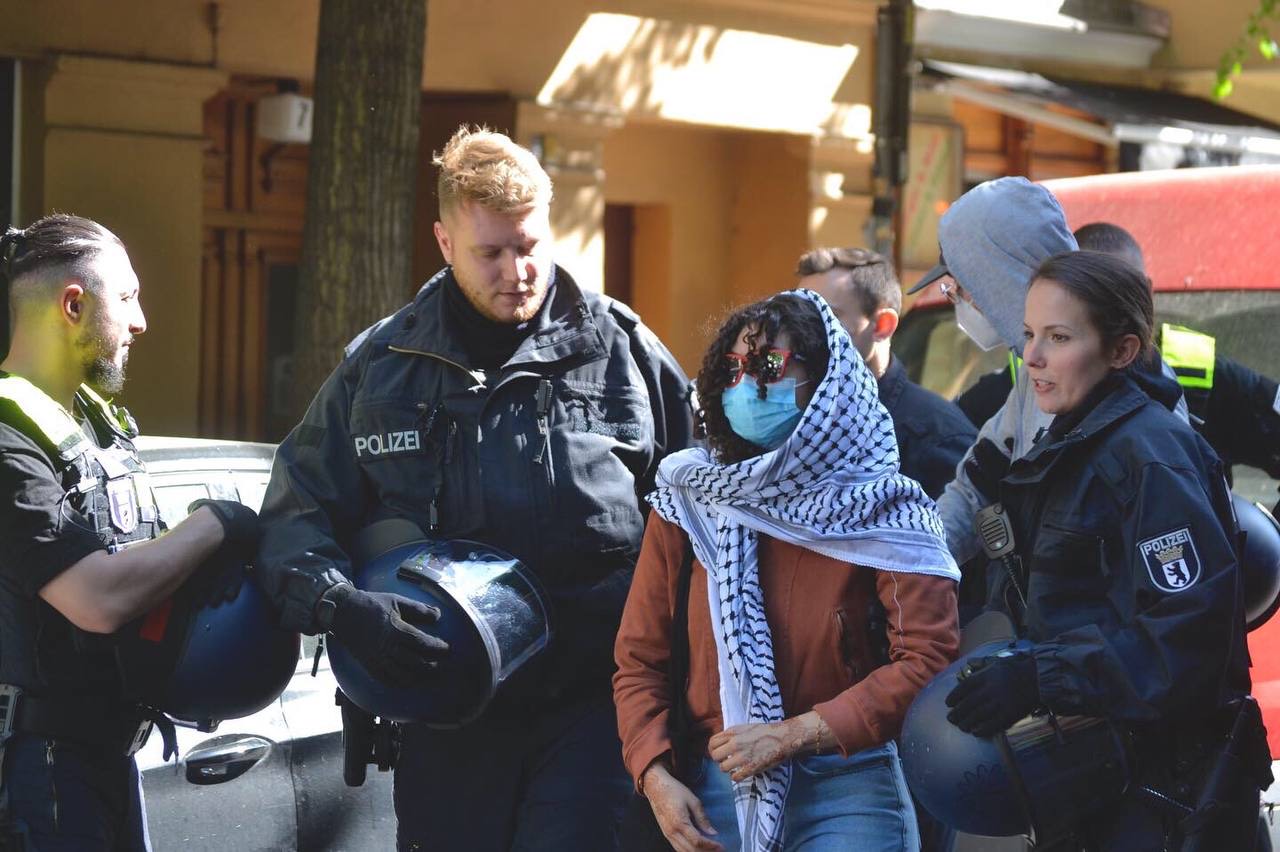
Other attendees who canceled to show support for El-Kurd include freelance artist Sarah Fartuun Heinze and researcher Thomas Spies, as well as American writer Ijeoma Oluo. Turkish-German rapper Apsilon, who was supposed to perform at the conference, also rescinded his participation. “[El-Kurd’s disinvitation] is a symptom of racist discourse in which any form of criticism of the anti-international imperialist policies of the Israeli state is delegitimized and labeled antisemitic,” Apsilon wrote on social media.
Jessica Kraatz Magri, a spokesperson for the Goethe-Institut, rejected the accusations of anti-Palestinian racism.
“This is decidedly a case-by-case decision in the context of the specific event,” Magri told +972. “The Goethe-Institut in Ramallah, for instance, has been a reliable partner to its Palestinian partners for many years and a place for open and unprejudiced debate on social issues in the region. We maintain a very cooperative working relationship with our local partners. Many of our projects aim to counteract the division of Palestinian society.”
There are over 150 Goethe-Institutes around the world, which are funded by the German Foreign Ministry and promote German culture and society to the world. Although the organization is not associated with any political parties, is legally independent, and has even signed an initiative criticizing Germany’s 2019 anti-BDS resolution, activists are skeptical about its commitment to inclusivity, particularly when it comes to Palestinians.
“It’s kind of ironic that Goethe signed a document criticizing the anti-BDS movement — proving that they are aware of this dynamic — and still acts this way toward one of the most famous Palestinians. It is the state of play in Germany right now, it’s not just Goethe, everyone is acting in this racist, anti-Palestinian manner,” Moshtari Hilal said.
Treating the Palestinian as collateral damage
The rescinding of El-Kurd’s invitation, therefore, did not come as a surprise to those familiar with Germany’s history of excluding Palestinian artists, academics, and activists. The last years have seen a shrinking space for Palestine advocacy in Germany, where pro-Palestinian speech is almost immediately labeled as antisemitic. Following the passage of the anti-BDS resolution in the German parliament in 2019, federal institutions began deeming all actions that support the boycott movement as antisemitic. This has allowed universities, state governments, and public institutions to deny Palestinians the right to free speech and assembly.
One of those academics, Dr. Anna-Esther Younes, is a German Palestinian who has been the subject of numerous disinformation campaigns. In November 2019, Younes, a scholar of critical race theory, was invited by Die Linke, Germany’s leftist political party, to a panel in Berlin to discuss strategies against right-wing extremism in Germany, only to have her invitation rescinded prior to the event. Weeks later, it emerged that RIAS Berlin, an antisemitism research center, and MBR, which monitors antisemitism and the far right in Germany, had surveilled and gathered information on her in order to paint her as an anti-Jewish racist, sexist, terrorist sympathizer.
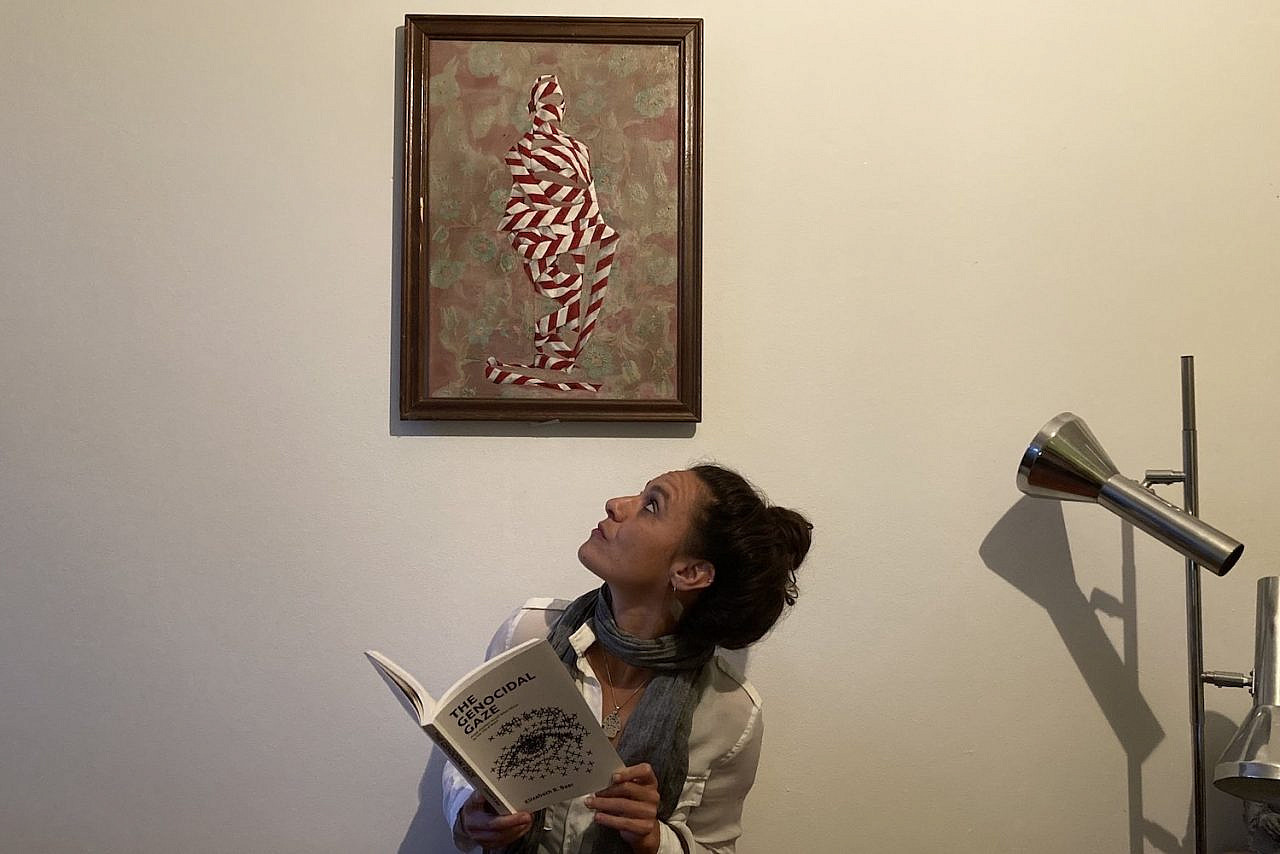
RIAS collected Younes’ personal information, her academic publications on Israel-Palestine, and information pertaining to her alleged support for the BDS movement, and created a secret dossier which it sent to Katina Schubert, the head of Die Linke in Berlin. It wasn’t long before the party revoked Younes’ invitation.
“I could not believe that we have secret files again in this country,” Younes told +972. “After two authoritarian regimes in one century, both of which deployed means and techniques of surveilling their own citizens and patrolling the boundaries of permissible speech — this is scary.”
The European Legal Support Center, which assists human rights NGOs and other groups and individuals advocating for Palestinian rights in Europe, and which represents Younes, said that they intend to hold RIAS and MBR accountable.
“We aim to achieve justice for Anna Younes and all other Palestinians and voices defending Palestinian rights in Germany who face surveillance by undemocratic actors such as RIAS Berlin and MBR,” said Alice Garcia, an advocacy and communications officer at ELSC. “More specifically, our goal was to get access to all the data collected by RIAS and MBR about Anna so we can have a better idea of the extent of the monitoring of Palestinian rights advocates by those actors.
“Anti-Palestinian racism sadly appears to be very common in Germany,” Garcia continued. “We have seen obvious manifestations of this type of racism in many incidents of repression that we have been monitoring, and it is very concerning that in most of the cases, public institutions are indeed involved.”
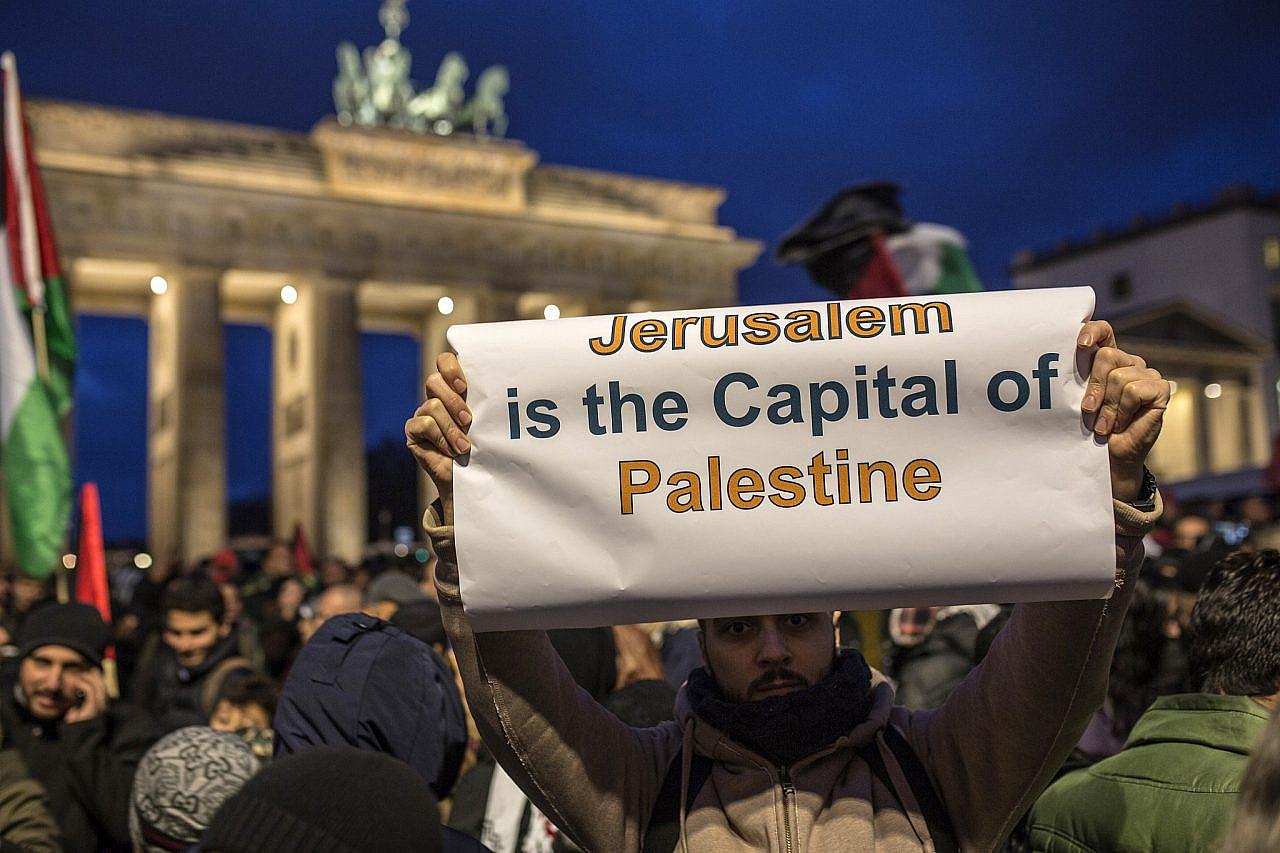
Younes’ case is not an isolated one. In 2021, researcher Kerem Schamberger was approached to contribute to an edited volume on the question of BDS and antisemitism titled “Frenemies — Antisemitism, Racism and their Critics,” due to be published by Verrichter Verlag in August 2022. Schamberger agreed to write on the condition that he be allowed to co-write his contribution with German Palestinian activist Ramsy Kilani. His request was approved in May last year, but according to an update Schamberger provided on his website last week, their article will now no longer appear in the anthology.
According to Schamberger, other authors who were tapped to publish their articles in the book threatened to withdraw their texts should they appear alongside that of Kilani and Schamberger. The pair’s suggestion to send their text to all authors in advance was not taken up. Giving into pressure from anti-Palestinian writers, Schamberger and Kilani’s contribution was therefore removed.
“It is not about the specific content of the contribution, which was known to some,” Schamberger wrote. “It’s all about the names Ramsy Kilani and Kerem Schamberger. The process confirms the central thesis of our contribution: Palestinian perspectives are structurally excluded from the German public debate, or do not even have access to it.”
“There is not a single person with a Palestinian background among the more than 65 other authors of an anthology that also deals with the issue of Israel-Palestine,” he continued, adding that the two will try to publish the text elsewhere.
Yet even when Palestinians are actually invited and allowed to participate in these settings, they often encounter criticism and public outcry.
In early June, Palestinian analyst and scholar Tareq Baconi delivered a talk in Berlin on the connection between the weaponization of antisemitism and Israeli colonialism, as part of a conference titled “Hijacking Memory: The Holocaust and the New Right,” which was hosted by Haus der Kulturen der Welt (HKW), the Einstein Forum, and the ZfA Center for Research on Antisemitism. The day after Baconi’s speech, two of his fellow conference participants — Jan Grabowski, a Polish-Canadian historian, and Konstanty Gebert, a Polish journalist — publicly read a joint statement that misrepresented Baconi’s talk and condemned his very presence at the event.
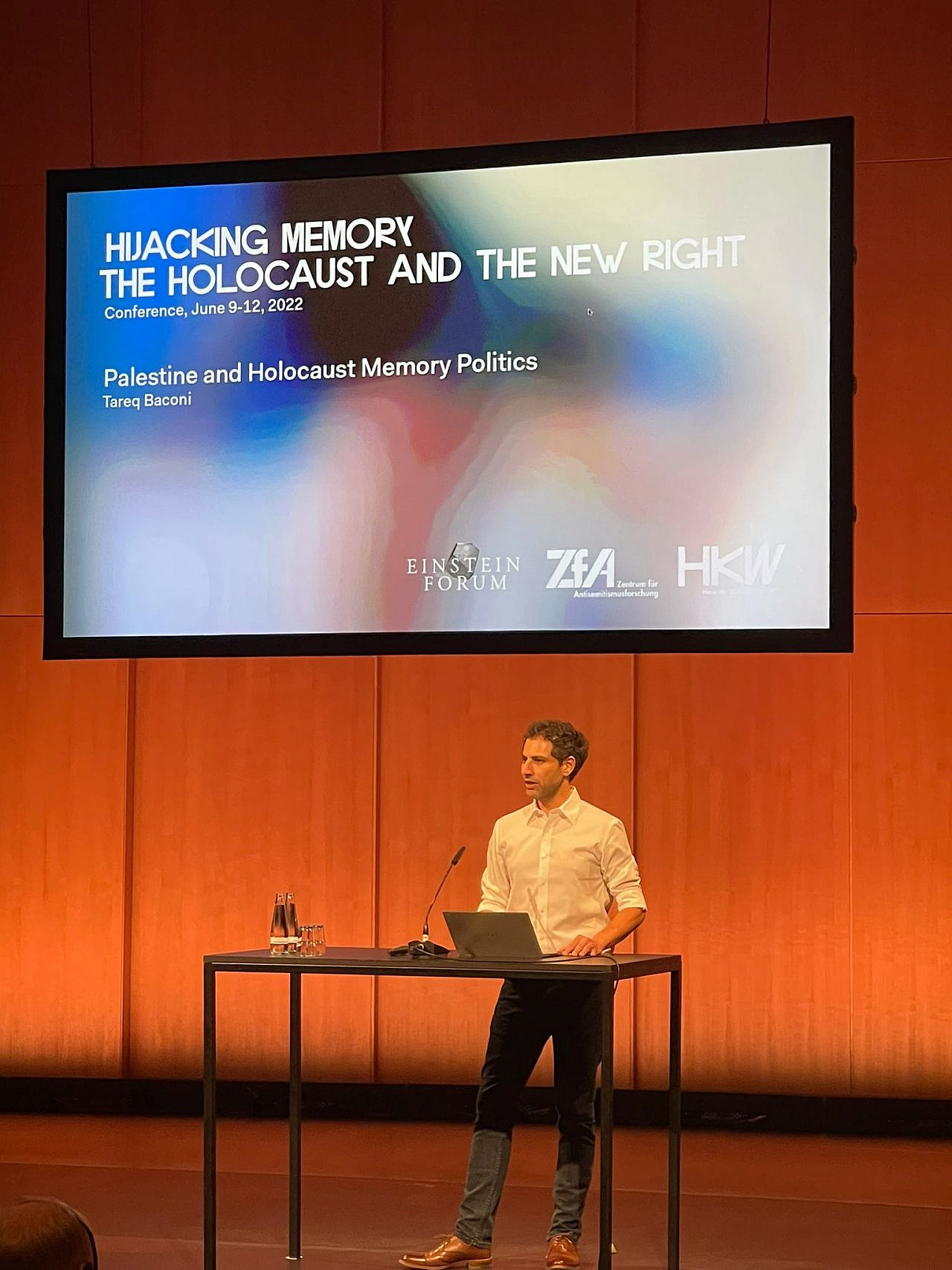
Grabowski later gave an interview to the German newspaper Die Welt where he described Baconi’s talk as “not a lecture” but “propaganda, militant, violent. Baconi conjured up the motif of child-murdering Israel.” While Baconi did mention the number of Palestinians killed by Israel in 2021, including children, he did not use the term “child-murdering Israel.”
“The reason that I went to the conference is specifically because the issue of antisemitism and the weaponization of the charges of antisemitism have been used as tools to shrink space for activism on Palestinian rights,” Baconi told +972. “For a long time, I didn’t get involved in any of the debates around antisemitism, because I don’t think it is a debate that necessarily involves Palestinians, except [that] the way that it’s been instrumentalized has directly constrained activism around Palestine. In this speech, I was specifically talking about the convergence between Israel advocacy and far-right movements that are shutting down free speech.”
The predictability of antagonizing Palestinian voices was precisely the dynamic Baconi wanted to address in the first place. “Palestinians are treated as collateral damage in this debate and they do not get to have a say in it,” Baconi said.
Small wins
And yet, despite the overwhelming forces acting to silence Palestinian voices in Germany, there have been a number of recent small victories.
As a result of the many cancelations, the Goethe-Institut conference both drastically scaled down the event and recognized their mistake. “We’ve made organizational mistakes in the run-up to the event and very much regret that these cancellations have occurred,” Daniel Stoevestandt, head of Goethe-Institut Hamburg said in a statement.
“The downscaling of [the] Goethe-Institut’s conference showed that our strength indeed lies in the collective vocally not accepting this dangerous conflation of anti-colonial struggle and antisemitism, and that boycotts are an effective way to take a stand,” said Vienna-based activist and writer Nicole Schöndorfer, who was also invited as a panelist at the Goethe conference.
“We weren’t able to do our roundtable as we planned,” Goethe panel organizer Varatharajah said, “but we managed to do something far more important: to show German institutions that anti-Palestinian racism can have repercussions far beyond the boundaries of your state. Solidarity will always trump fascism.”
And in mid-May, Younes won a legal victory when the Berlin District Court ordered the state-funded Society for a Democratic Culture in Berlin (VDK) — which oversees RIAS and MBR — to release any data it has collected on Younes. In mid-May, Berlin’s Data Protection Authority (DPA) ruled that RIAS Berlin and MBR acted within the law when they compiled and shared the dossier on Younes, while at the same time upholding Younes’ right to access the dossier.
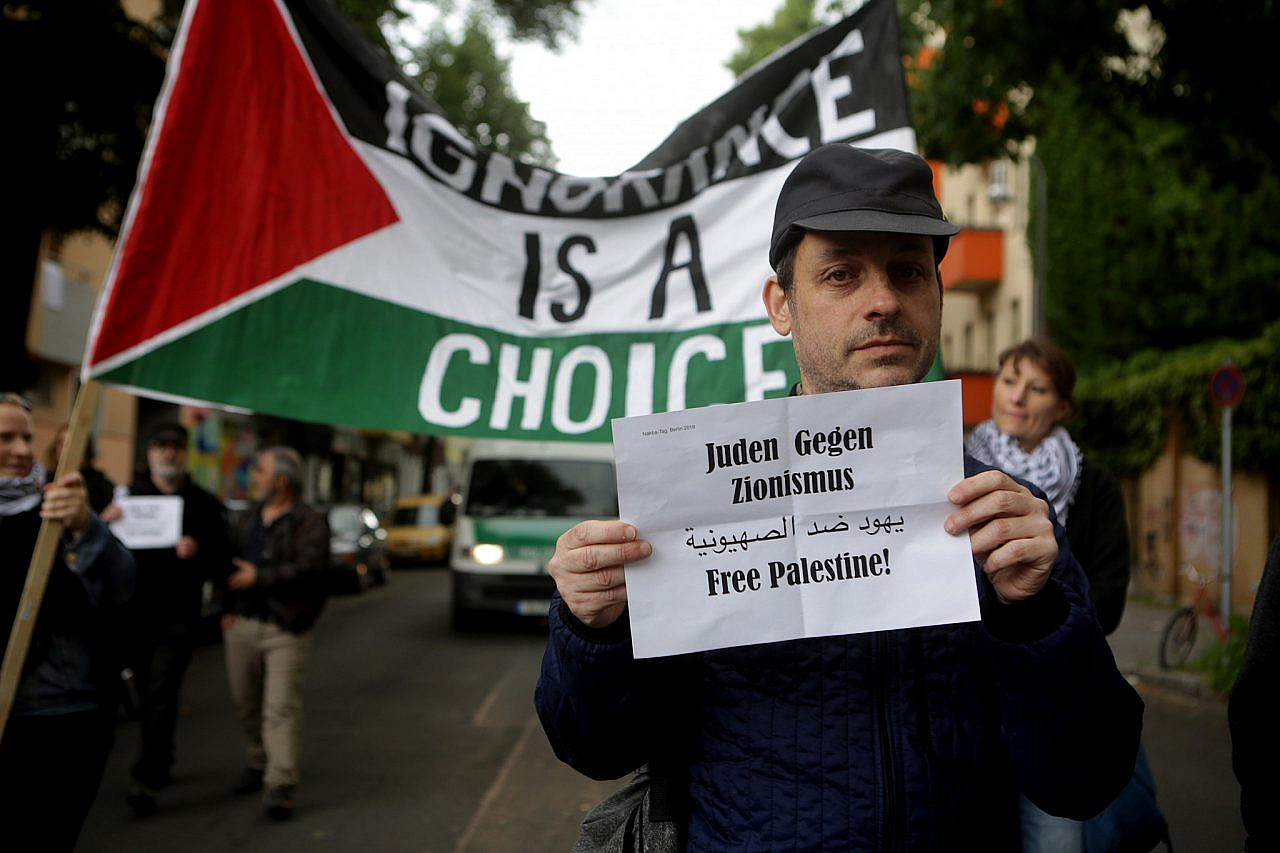
“We have to realize how brave Anna was to decide to challenge her censorship and go after RIAS and MBR in court, given the context of high self-censorship in Germany,” said ELSC’s Garcia. “She is reclaiming her space and challenging their narratives, which is remarkable in a country where fear of speaking out is so prominent. We hope that this sends a positive message.”
“We aim to establish this case as a viable precedent for other Palestinians and pro-Palestine thinkers and activists in Germany,” Younes said. “It is meant to benefit those who have landed on the blacklist of those in this country who clearly view Palestinians as second-class citizens.”
Baconi, meanwhile, reflected on the courage of the “Hijacking Memory” conference organizers, who unanimously offered their support following Grabowski’s attacks. “The fact that conference organizers were able to bring me in, give me that platform and defend me after these accusations have surfaced afterwards speaks to the organizers’ commitment to free speech,” he said.
“Some of the tools that supporters of Israel and far-right actors have is to intimidate and demonize and to carry out character assassinations, and most institutions buckle under that intimidation, so I thank the conference organizers for their commitment to have these honest conversations about what is happening on the ground rather than giving in to bullying tactics.”

